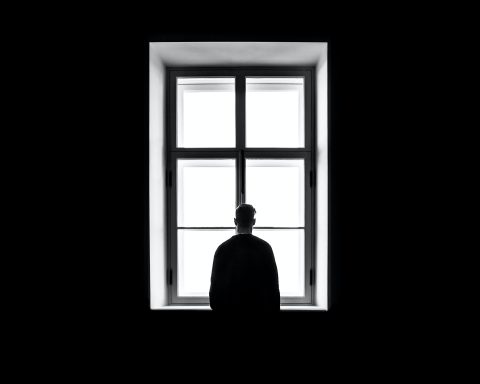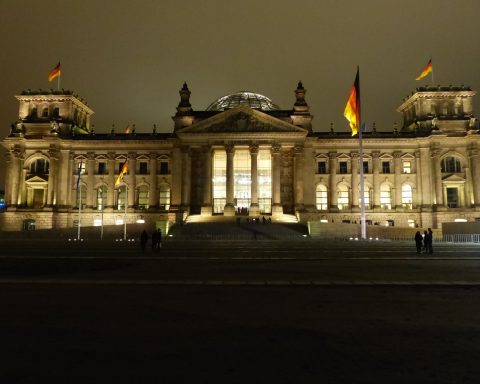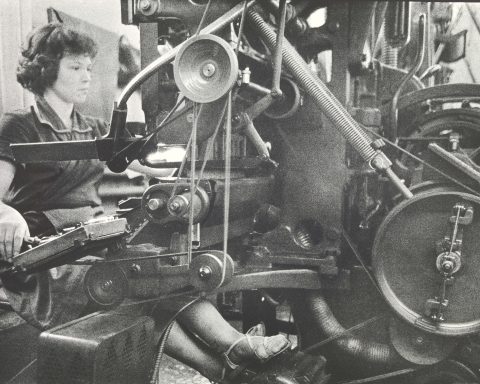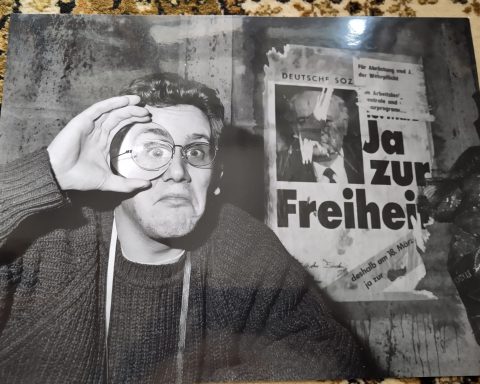Editor’s note: Sometimes that’s how these things work – Jerome Simpson liked something leipglo-related as his Facebook page, I clicked on his page name, read through it and his Web site, and became intrigued with his project. It’s described on his site as “‘Wandervögel: A Prussian Family’s Passage Through Leipzig’… a historical study now being researched and written… on seven generations of migration. It [includes] a 22 page historic guide to the city and also reflects on mobility matters.” To discover the cast of characters, you’ll have to read at the source. But I wanted Jerome to tell us a bit about the backstory to his project here. What set him on his Leipzig-related historical and genealogical quest? Here’s our Q&A with the author and researcher…

Q: Jerome, thanks a lot for chatting! Could you tell us a little bit about your background (i.e. are you a historian?) and where you’re based?
A: I’ve been working in Hungary since 1994 as a project manager at an international non-profit organisation called The Regional Environmental Center for Central and Eastern Europe. I mostly work on urban mobility issues. I’m neither an environmentalist nor a historian by background but I trained as a knowledge manager, which back in the day was better known as a librarian/archivist. So the difference between managing and presenting historical data is not that great from my perspective!
Q: Could you summarize your historical project?
A: I wanted to understand where I came from and what made me who I am. Actually, I was inspired by Thomas Mellon, a 19th century Irish emigrant to the US who wrote: “If you would know yourself, begin with the study of your forefathers.” So after grabbing my grandmother’s attention for a moment at her 80th birthday (I was only 16 at the time) once she’d mentioned she was born in Leipzig and that her father was from what today is Poland, I was hooked. We shouldn’t forget, at that time, 1987, both locations were behind the Iron Curtain while my grandmother then lived in Holland and I grew up in England. Since many stories were subsequently passed on about her grandfather and his five other grandchildren, I decided to write the family history from his birth in 1852 in Schleswig-Holstein, right up to 1990, which is when my grandmother died, and of course when her partitioned homeland was reunified.
Q: What motivates you to do it?
A: I have four goals. The first I’ve mentioned above, but I’m also nosey and I’d like to know what challenges and fortunes my family endured. My grandmother and her sister, for instance, were packed off to America at the ages of 15 to work as acrobats in an all-girl vaudeville troupe during the 1920s. We have loads of family photos and so the intent is to write a story that accompanies the photos. I also find it really fascinating that each generation migrated from one country to another (back in 1877 for instance when the Holsatian arrived in Leipzig they travelled from Prussia to the Kingdom of Saxony); and so another key aim is to understand ‘why?’ (hence the book is called Wandervögel: A Prussian Family’s Passage Through Leipzig). That requires reading a lot of modern history books, and so hopefully the result is not just a story book about my family, a kind of travelogue, but to an extent a history of Leipzig, Germany, Europe and North America too (my grandmother’s sister returned to the continent in 1957).
Q: How did you get access to the material?
A: Fortunately the German archives are really well-maintained. Some were lost in the war, including old military materials from the Franco-Prussian war that had been filed in Berlin as well as residential records in Amsterdam. But usually it’s been a case of dropping a well-articulated note to town or state archives, whether they be in San Francisco, Leeds, Leipzig or wherever. Even if the answer is negative, that too tells me something.
Q: Is your work purely historical or have you fictionalized some?
A: About 95 percent of it is fact. In some cases I have taken the facts as I have received them and woven a story around them. It helps to bring the narrative to life. Occasionally I borrow quotes from writers – Thomas Mann or Christopher Isherwood for instance, because their stories have paralleled my forefathers’. But I try to write in such a way that should a TV film producer (à la Edgar Reitz’s Heimat) or publisher pick up on it, the basic script and necessary context are all there.
Q: Can you tell us about the next installment of the series?
A: I’ve just finished the fourteenth chapter of 20, which is entitled “The Last Leave Leipzig.” It covers the period 1935-1939 and sees my grandmother’s sister and cousins follow her lead by leaving Leipzig themselves. The story, however, doesn’t end there because the daughter of one of those cousins returns and so she becomes the link to the city, which enables me to continue writing about it during the DDR era. Usually it takes me about six months to pull a chapter together. The next, covering the period of the Second World War, will be entitled “Lives Less Ordinary.” It’s rather a coincidence but both my grandmother, who had settled in Holland by that time, and her cousin, who lived in Dresden, had daughters they named Irene. Both cities suffered frightfully during the war of course. I was going to title it “The Tale of Two Irenes” but both had few memories of their own to share except from the tail-end of the war, so I will draw on their siblings and parents’ recollections mainly.
The entire book’s contents are online, which is where Chapter XV will be posted once complete, hopefully around June 2016.








